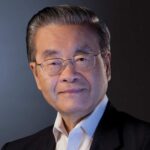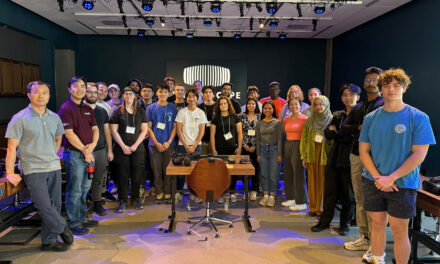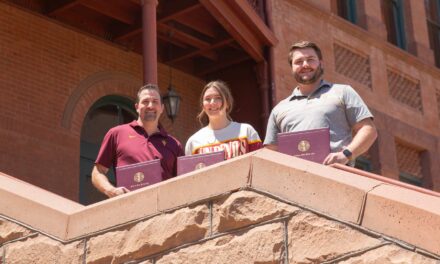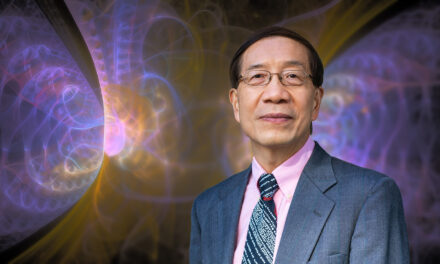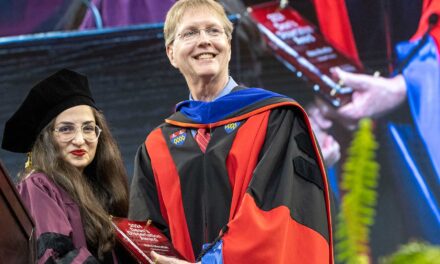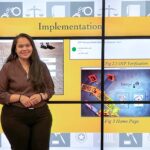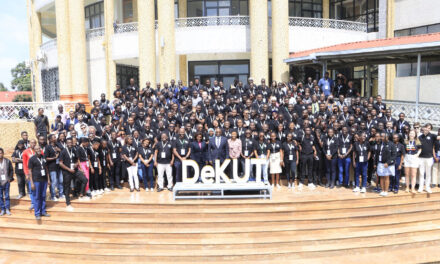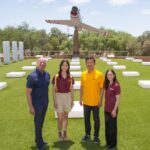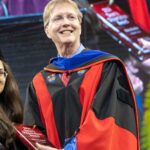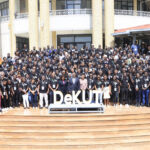
ASU awarded $10M to advance future-generation wireless networks
ASU Professor Yanchao Zhang will lead a new DOD-funded Center of Excellence to advance wireless communications
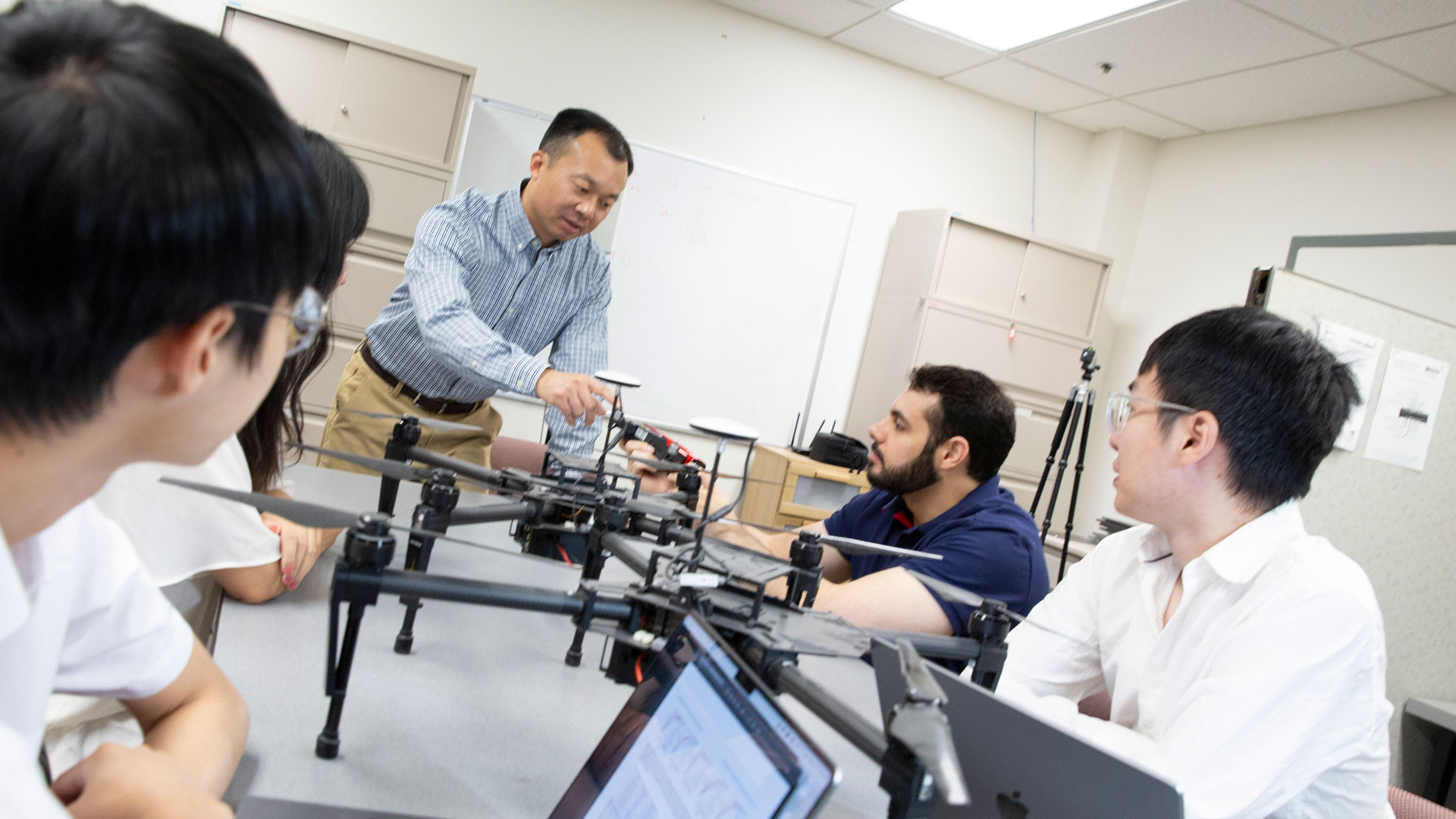
The U.S. Department of Defense has awarded Arizona State University an exciting opportunity to establish a Center of Excellence in Future Generation Wireless Technology, which seeks to advance wireless communications technology to bolster national security. The Center of Excellence was awarded through the Historically Black Colleges and Universities and Minority-Serving Institutions Research and Education Program and is administered by the Army Research Laboratory.
Yanchao Zhang, a professor of electrical engineering in the Ira A. Fulton Schools of Engineering at ASU, will lead the $10 million initiative over the next five years. Fulton Schools researchers will collaborate with researchers at The Ohio State University to drive technological advancements to address a wide spectrum of network challenges and opportunities, including signal processing technologies, distributed control and machine learning algorithms and innovative security mechanisms.
The Center of Excellence in FutureG is strategically positioned to enhance ASU’s research and educational capabilities while positioning the university as a critical contributor to preserving the military’s technological edge in future-generation wireless, or FutureG, technology.
Pushing communications technology to new heights
FutureG networks, such as 6G and beyond, are designed to seamlessly incorporate artificial intelligence and machine learning into integrated sensing, communication and computation.
FutureG networks are distinct from existing networks like 5G due to various advances, including global coverage, faster data rates, lower delays, high-precision positioning, improved network reliability, greater energy efficiency and better security.
The Center of Excellence in FutureG seeks to gain tactical advantages for the U.S. military by using FutureG networks. The center’s team will develop fundamental hardware and software solutions to ensure extraordinary network capacity, establish scalable network control, foster intelligent and resilient network management, and fortify security and reliability. Researchers in the center also aim to develop energy-efficient system-on-a-chip technology and pioneer augmented and virtual reality applications in the FutureG realm.
Zhang says ASU’s selection as the lead institution for the new Center of Excellence can likely be credited to the university’s established reputation for leadership in networking technologies. He based the premise for the center on his ongoing work in the Cyber and Network Security Group, which conducts fundamental and experimental research on security and privacy issues in computer and networked systems.
“Each technical thrust within the center is guided by an eminent expert with a remarkable track record in their respective area of specialization,” says Zhang, a faculty member in the School of Electrical, Computer and Energy Engineering, part of the Fulton Schools. “Our diverse range of complementary expertise empowers us to collaboratively address the challenges presented by FutureG networks. I believe this collective strength is a key factor behind our selection by the DOD.”
The group’s focus on wireless networks and systems, artificial intelligence and machine learning has led to several research projects supported by federal research agencies.
“The FutureG Center of Excellence is a prime demonstration of ASU’s commitment to advancing wireless communications technology and recruiting and building the workforce needed to deploy it globally,” says Stephen Phillips, professor and director of the School of Electrical, Computer and Energy Engineering.
Zhang’s contributions to wireless and mobile security technology have earned him the status of Fellow of the Institute of Electrical and Electronics Engineers and key leadership roles in the research community. He has chaired four workshops for the National Science Foundation and U.S. Army Research Office and collaborated with both organizations to identify critical research challenges and shape their research agendas in cybersecurity and privacy within networked systems.
An asset for the ASU community
Zhang says that beyond technological advances, the ASU community stands to benefit greatly as the home of the Center of Excellence in FutureG. He says hosting the center will further distinguish the research initiatives already being led by ASU.
“Our center’s team aspires to establish ASU as a premier leader and invaluable contributor in upholding the DOD’s technological superiority in FutureG technology, both during the project’s five-year duration and beyond,” Zhang says.
He is particularly proud of the opportunities the center will offer engineering students, especially those from communities often underrepresented in engineering and technology fields.
Kyle Squires, ASU vice provost for engineering, computing and technology and dean of the Fulton Schools, praises the center for exemplifying the Fulton Schools’ values.
“Being awarded this new center of excellence reflects the DOD’s confidence in ASU’s established leadership in areas vital to future-generation wireless technologies,” says Kyle Squires, the ASU vice provost for engineering, computing and technology and dean of the Fulton Schools. “Not only will this center contribute advances to help support an efficient and reliable communications infrastructure, it’s fulfilling one of the university’s core missions to offer learning opportunities to a broader community through purposeful, impactful research.”
Named a Hispanic-Serving Institute, or HSI, in 2022, ASU is committed to serving a diverse community. The Center of Excellence in FutureG at ASU is one of four centers across the U.S. being established to help increase the number of graduates in STEM fields, including those from under-represented minorities.
“Establishing the centers at minority-serving institutions also strengthens the STEM pipeline by improving the skillsets of future scientists and engineers, preparing them for careers that will help advance the Department’s research enterprise,” said DOD HBCU/MI Program and Outreach Director Evelyn Kent in an Oct. 17 press release.
The FutureG Center of Excellence will be directed by Zhang with support from six accomplished co-principal investigators at Arizona State University and The Ohio State University:
- Daniel Bliss, Chaitali Chakrabarti, Antonia Papandreou-Suppappola in the School of Electrical, Computer and Energy Engineering
- Robert LiKamWa in the School of Electrical, Computer and Energy Engineering and the School of Arts, Media and Engineering
- Guoliang Xue in the School of Computing and Augmented Intelligence
- Ness B. Shroff at The Ohio State University





